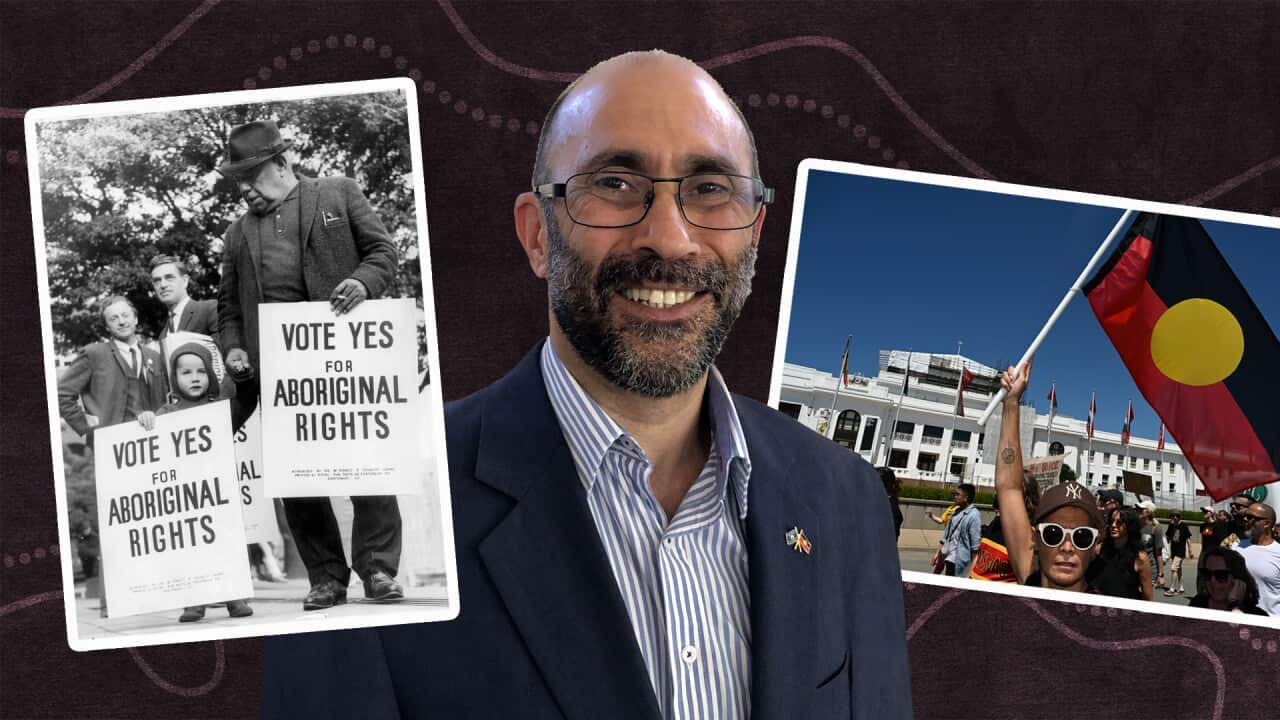On October 14, I will be writing yes on the ballot paper to ensure our people are heard in this country.
When I write yes, I will be holding my criticisms and concerns of the colony closely.
When I write yes, I will be a staunch Kulumbirigin Danggalaba Tiwi woman.
When I write yes, I will be a defender of Country and a protector of water.
When I write yes, I will be a fierce nurturer of our children and our Elders.
When I write yes, I will do so knowing that I am choosing to create another alternative for our children and grandchildren.
I will write yes, because I am long past the point of debating the idea of whether an advisory body needs to exist in this country.
An advisory body embedded in the Constitution is western legal brilliance. It is clever of our people to know that legislation comes and goes with changes in government, and thereby decide to insert an advisory body into the Constitution.
I am not dismissive of the realities of the colony and the brutality that governments have and continue to cause us. In fact, I am accurately aware of the limitations of the colony to uphold their end of the bargain. Hence, I am weary that embarking on the treaty-making processes now will be simply treacherous and illogical for my people and our clan.
Our clan is simply not in the position to begin treaty-making processes. We do not have the infrastructure established or even the collective understanding of who the rightful parties are who would be treating with the government to begin the legal process.
The voice makes sense to me in the context that I am living in.
For me, it is a little step, and for this colony, it is proving to be difficult.
The self-determination of clans
As a weary and cautious yes voter, my concern is not with unpacking the nuance of what is progressive, rather it is: “How do we ensure our clan is heard and seen as a legitimate voice alongside or instead of the PBCs and Land Councils?”
This, I believe is where our energy and criticism need to be. And this is a discussion that is not for settlers to discuss; this is a topic that is specific to each tribe and clan.
We have to be realistic about the context in which the Voice is taking place: we are in the colony, under democracy and the western legal system. Whether we see these systems as “legitimate” or not, these are mechanisms we have to learn and understand. This understanding is by no means submission or complacency.
My dream is for local tribes and clans to establish our own organisations and/or companies that are capable of being local voices. Our clans will need ABNs, Constitutions and governance grounded in our laws to be legitimate in the whitefulla ways.
We will have representative boards inclusive of all genders and lived experiences so we can represent ourselves. We can opt in or out of discussions affecting us in ways that work for us.
My priority now is the strategic planning and infrastructure building that needs to take place in our communities so that we can be our own local voices. I want our local voices to be recognised as legitimate and respected in the same way PBCs and Land Councils have previously been advisory-like bodies to government.
The importance of accountability within the Voice
The final report published by National Indigenous Australian Agency in July 2021, identified that there would be “local”, “regional” and “national” voices. The report states that ‘Local & Regional Voices would work cooperatively with and not displace or undermine existing bodies’.
I hope this recommendation can be implemented to ensure that existing bodies like Land Councils and PBCs are kept separate from the establishment of local voices. I hope that Local, State, Territory and Federal Governments will see tribes and clans as legitimate advisory Voices.
We must be weary of the position land councils are in to assume the role of local or regional voices. It is up to us as the people to hold our current representatives and local members to account to ensure that the Voice is established properly in alignment with the recommendations from 2021. It is in the creation of legislation after the referendum that we must be critical and loud.
I write this to encourage my people to think about the legal frameworks and infrastructures we are building to be the local voices and eventually, the treaty-making parties.
We must ensure that the legislation developed for the Voice in the Northern Territory permits small local organisations of clans and tribes to be voices.
Our people’s activism and calls for accountability have created the rights we have today.
Tribes and Clans must be made ready to become local voices.
That is what I see beyond the yes vote.
Mililma May is a Kulumbirign Dangglaba Tiwi woman living, working and studying on Gulumoerrgin. Mililma is CEO of Uprising of the People, a Darwin-based grassroots organisation that nurtures and rebuilds the relationships between, Elders, Country and Young People. Mililma is an advocate for Rest as Resistance, an activist, artist and writer.




